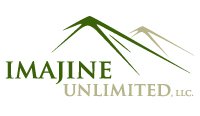“If your emotional abilities aren’t in hand, if you don’t have self-awareness, if you are not able to manage your emotions, if you don’t have empathy and effective relationships, then no matter how smart you are, you are not going to get very far.”
Daniel Goleman
Awareness is one of the most critical skills that we can have in life. If you are not personally aware, your thoughts and emotions can lead you down a negative path. When you are not socially aware, you can hurt relationships and your influence.
If awareness is so important, then why do we often overlook it? Sometimes we do not value it, so we let other priorities or busyness push it aside. Sometimes we fear it. Awareness takes vulnerability, and we may fear what we will find.
Do you want to reach your greatest potential and have an impact on others and the world around you? Then we need to choose to overcome our barriers to awareness and engage it. Here are some steps forward:
Top of Mind Awareness
Awareness does not need to be hard to do. An effective way to have awareness is to keep something visible before you. Advertisers use this technique often by keeping their brand in front of you in social media, email, signs, etc. You can apply the same technique to yourself. For example, you may have a characteristic you want to develop about yourself, such as being patient with others. A top of mind awareness technique is to write patience on note cards that you put on your computer, refrigerator and mirror. Another tool is to use pop up reminders on your phone. The other day, I was talking to a leader who likes to sum up her theme for the year in one word. This year her word is “focus.” I know another person who had a drawing created for a theme for her year. Seeing the drawing helps to keep her theme in her awareness.
Top of the mind awareness techniques are great for keeping us intentional and as reminders.
Intentional Reflection
Intentional reflection takes more time but is very effective in taking our awareness to a new level. This kind of awareness may include taking assessments, such as personality profiles, 360 feedback or any variety of inventories depending on the topic that will best help you. Another technique is reading deeply where you note what you are learning and can apply. Journaling is another tool that allows your mind to think but also to capture the thoughts of awareness in a “black and white form” outside of yourself to acknowledge and review.
It helps to develop a habit and routine with intentional reflection. Is it something you can engage in monthly weekly, daily? What kind of technique and when in your calendar works best for you?
Application
This is where you take awareness to a next level of behavioral awareness. For example, in emotional intelligence, you apply self-awareness to help develop your self-management of emotions, and you apply social awareness to help you navigate relationship management. Maybe you have become aware that when you are frustrated, you are prone to be blunt with others. Self-management is being aware of when you are frustrated and either choosing to not be around people so you can gain perspective or still being around people but monitoring your speech to be gracious and curious. With social awareness, you become intentional to read how others are feeling and then use awareness to adjust your behavior. For example, you hear that a coworker has received devastating news, so you use that awareness to adjust your behavior to show empathy rather than just jumping right into a work task that you want done.
Where have you incorporated awareness into your life? It is helpful to incorporate all 3 levels of awareness. What techniques do you find that work for you?
